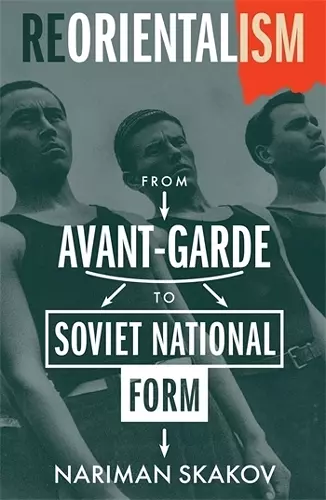Reorientalism
From Avant-Garde to Soviet National Form
Format:Paperback
Publisher:Columbia University Press
Published:28th Oct '25
Should be back in stock very soon

It is commonly believed that Stalinism ended a vibrant period in Soviet avant-garde art and literature. The triumph of socialist realism, in this view, curtailed experimentation with aesthetic form and replaced it with a call for clarity, accessibility, and ideological conformity. But Stalin’s formula “national in form, socialist in content” gave artists an opening for officially sanctioned formal innovation—as long as it drew on the national cultures of the Soviet Union.
Nariman Skakov offers a new way to understand Soviet modernism, showing how writers and artists looked to the East to renew avant-garde experimentalism under Stalin. He traces how figures such as Victor Shklovsky, Aleksandr Rodchenko, Varvara Stepanova, Dziga Vertov, and Sergei Eisenstein responded to the Soviet state’s ideological demands by engaging with the traditions of the new socialist republics in Central Asia. The concept of national form gave these artists a sanctuary for aesthetic innovation, yet this experimentation relied on exoticization of the “strangeness” of the Soviet East and a fascination with ethnic others.
Recasting Soviet aesthetics from the vantage point of Central Asia, Skakov rethinks orientalism and its relationship to socialism. Challenging conventional narratives of the fate of the Soviet avant-garde, Reorientalism provides a deeply original decentering of modernism.
With dazzling erudition, Skakov shatters the spatial and temporal coordinates of Soviet modernism through its little-known encounters with Central Asia and Stalinist “national form”—encounters that enabled sustained artistic experimentation even amid the turn to socialist realism. The result is a transformative view of both the avant-garde’s fascination with the other and the early Soviet Union’s decolonizing claims. -- Steven S. Lee, author of The Ethnic Avant-Garde: Minority Cultures and World Revolution
This meticulously researched book is essential reading for anyone interested in understanding the discursive short circuits and contradictions that plagued the Soviet project of modernity. Skakov proposes that the Soviet Union was a “conceptual muddle” with the Soviet Orient at its heart. The theoretical debates he rehearses are testimony to Russia’s historical dependence on the cultural construction and subjugation of “others,” lending depth to debates around the violence of Russian colonialism today. -- Klara Kemp-Welch, The Courtauld Institute, University of London
In this capacious and exciting work, Nariman Skakov offers a fascinating new angle of vision for analyzing Soviet culture of the 1930s and early 1940s. Avant-garde artists deprived of their aesthetic coordinates in the Stalin era turned eastward to “reorient” themselves in relation to their own work, their life stories, European modernism, and world socialism—creating a tangle of often contradictory tendencies, including modernist style, utopian anti-imperialist modernization, and orientalist and colonial discourses. -- Elizabeth Papazian, associate professor of Russian and film studies, University of Maryland
ISBN: 9780231218016
Dimensions: unknown
Weight: unknown
360 pages